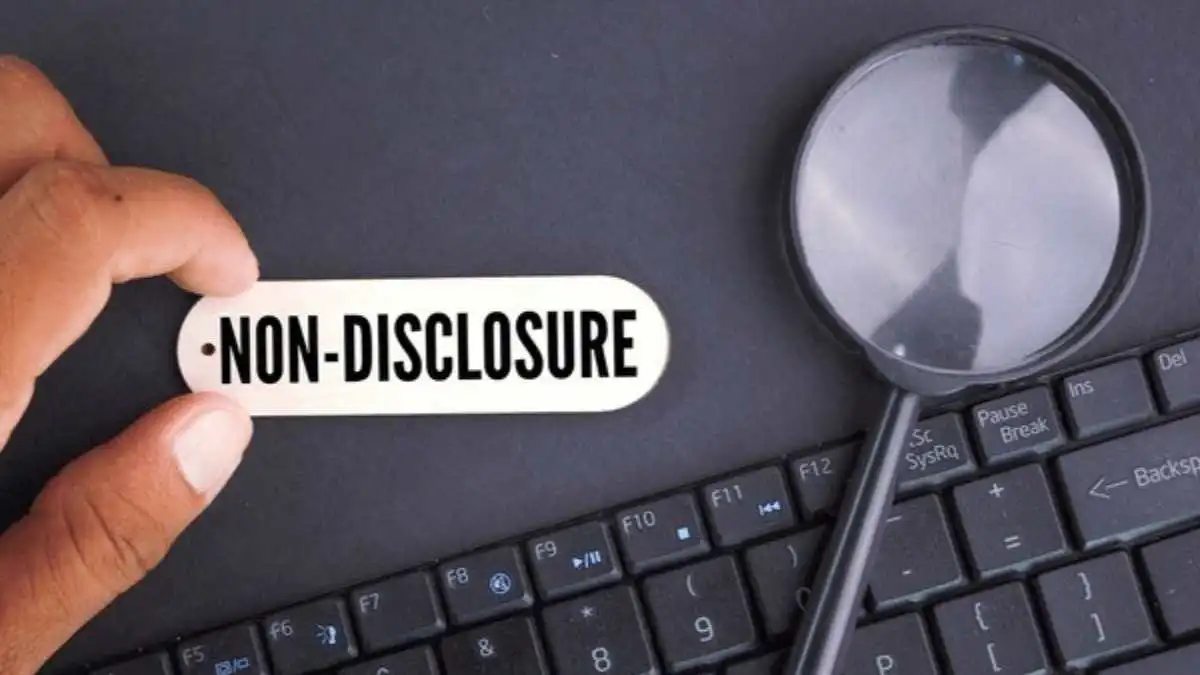Law
Offenses That Don’t Qualify for Non-Disclosure in Texas

In Texas, a non-disclosure order allows certain criminal records to be sealed by the public. In Houston, a criminal record can affect your ability to get employment, housing, financial aid, and international travel.
A non-disclosure order is a very valuable option for people in Houston who want to move forward with their lives without their past interfering with their future. A non-disclosure lawyer in Houston can help you figure out which records can be sealed. However, not all offenses are eligible for non-disclosure in Texas, which we will discuss below.
Table of Contents
What Is a Non-Disclosure Order?
A non-disclosure order restricts the public from accessing parts of a criminal record. Even though it does not erase the record completely, it prevents the public, including private employers and background check companies, from seeing it. On the same note, you are not entitled to disclose your record on any applications or forms.
To qualify for a non-disclosure order, individuals must have completed probation, waited for the required amount of time, and avoided further criminal activity.
Crimes That Are Not Eligible for Non-Disclosure
According to Texas law, most crimes that do not qualify include violent and sexual crimes or those that involve vulnerable victims.
1. Violent Offenses
Certain violent crimes are not eligible, regardless of how much time has passed. These include:
- Murder and capital murder
- Aggravated kidnapping
- Any offense involving family violence
2. Sexual Offenses
Texas excludes all crimes that require sex offender registration from being eligible for a non-disclosure order, for example:
- Sexual assault and aggravated sexual assault
- Indecency with a child
- Possession or promotion of child pornography
Even if these charges were resolved without conviction, they still cannot be sealed.
3. Offenses Involving Children or Vulnerable Individuals
Any offense that puts children or dependent adults at risk is treated as a serious offense. For example, abandoning or endangering a child, injuring a child, an elderly individual, or a disabled person.
4. Other Disqualifying Circumstances
Sometimes, it is not the nature of the offense but the circumstances surrounding a case that make a person ineligible. You may not qualify if:
- You violated a protective order or a bond condition in a family violence, stalking, sexual assault, or traffic case.
- You were convicted of another crime (apart from minor traffic cases) after completing your case.
Why This Information Matters
Knowing whether your offense qualifies for non-disclosure can save you time, money, and disappointment. There are some documents you may require, such as:
- A court order showing that the judge reduced your probation, community supervision, or deferred adjudication.
- The judgment of your case.
- An order showing you completed probation or deferred adjudication.
- An order showing that your case was discharged.
Applying for an order when you are ineligible or do not have the right documents may delay other options. If you are unsure about your case, consulting a lawyer in Texas can help point you in the right direction.
Conclusion
Non-disclosure in Texas offers a second chance for many people, but not for everyone. Offenses involving violence, sex crimes, and harm to vulnerable individuals are typically not included.
-

 GENERAL8 months ago
GENERAL8 months agoChristofle – For Those Who Dream of Family Heirloom Silver
-

 SPORTS10 months ago
SPORTS10 months agoDiscover the World of Football with Streameast: Watch Your Favorite Leagues and Tournaments
-

 GENERAL2 months ago
GENERAL2 months agoUncovering the World of кинокрадко: The Dark Side of Film Piracy
-

 GENERAL5 months ago
GENERAL5 months agoATFBooru: Anime, Gaming, and Subculture Imageboard




























